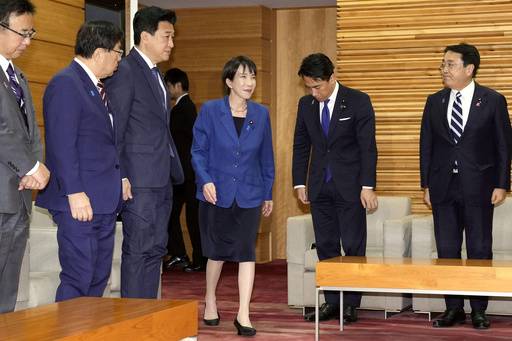Japan PM aides air concern about her approach to work

Close aides to Japanese Prime Minister Sanae Takaichi have expressed concern about her round-the-clock approach and the lack of downtime she has taken since becoming leader a month ago, with some observers criticizing her style as out of touch with the aspirations of modern Japan.
Government officials report that every night Takaichi leaves her office and goes directly to the accommodation provided for members of parliament in Tokyo’s Akasaka district. There she continues to work for hours preparing for Diet sessions and attending to her diplomatic responsibilities.
Her style sharply contrasts with that of her predecessors, including her mentor, assassinated former Prime Minister Shinzo Abe. Abe dined with colleagues, business and academic figures more than 10 times in the month after becoming Japanese leader in December 2012, according to media reports.
Opportunities
Dinner and lunch meetings with fellow politicians and others are considered valuable opportunities for leaders to gather information, strengthen political alliances and form policies.
Government officials say Takaichi had a period in which she regularly ate out after her defeat in the ruling Liberal Democratic Party presidential election last year, but she did not continue doing so for long, despite being counseled to build relationships in this way.
“I would rather work out policies and read documents instead of spending my time going out to drink,” Takaichi has said, according to the officials.
People close to her say she has recently been sustaining herself with “boxed meals at the (parliamentarians’) acommodation.”
Takaichi’s attitude to work raised eyebrows when she said in her LDP leadership election victory speech on Oct. 21, “I will have everyone work like a workhorse. I myself will abandon the idea of work-life balance. I will work, work, work, work and work.”
‘Karoshi’
Her remarks seemed to contradict labor reform efforts in which Japan aims to curb long working hours to prevent “karoshi,” or death from overwork, a serious social issue in Japan.
Her statements have also led labor unions to be critical of the example she has set.
She faced further ridicule after apparently arriving at work at 3 a.m. on Nov. 7 to convene a three-hour meeting to prepare for a lower house Budget Committee session that was scheduled to start six hours later.
At a separate parliamentary session last week, Takaichi said, “Currently, I sleep about two hours, or four hours at the longest,” responding to a question from a lawmaker who has argued against her plan to loosen work hour restrictions.
“She checks documents personally instead of delegating jobs to bureaucrats,” a source from the prime minister’s office said, while expressing hope that Takaichi rests more.
Another source close to Takaichi said, “I understand it’s her way, but I don’t want her to work so hard.”

















